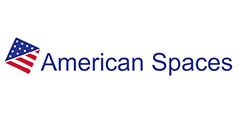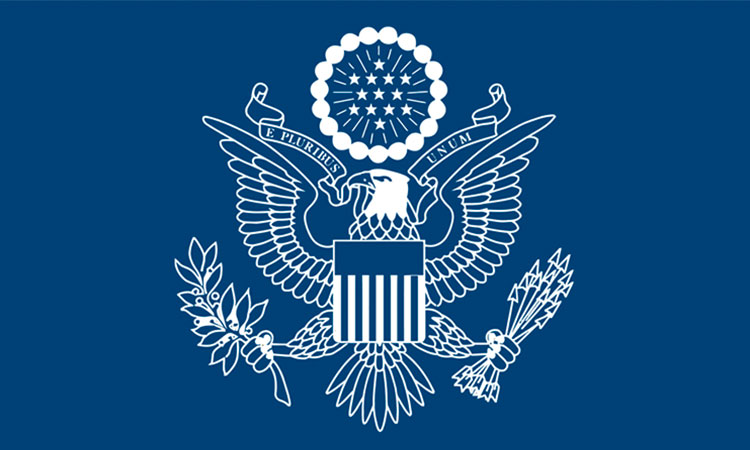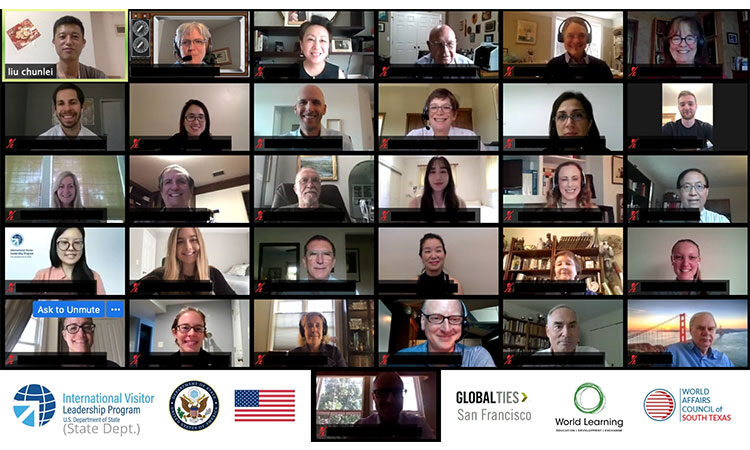Ask a COVID-19 Question
Last updated:(12/8/20)
Country-Specific Information:
- The U.S. Department of State currently has a level 2 travel advisory (Exercise Increased Caution) for South Korea. Please see the full language of the travel advisory here.
- Authorities have confirmed that community-based transmission of COVID-19 is still occurring in Korea. All travelers to Korea should be aware that there is a mandatory 14-day quarantine upon entry. Most tourists must quarantine in government facilities at their own expense. COVID-19 screening measures are subject to change with little advance notice. General information is detailed below, but please consult the ROK COVID-19 Portal for the most up-to-date information on special COVID regulations and immigration procedures before your travels.
- South Korea has resumed most transportation options (including airport operations and re-opening of borders) and business operations (including day cares and schools). Although most stores, schools, and public buildings are open, national and local governments occasionally exercise authority to regulate businesses, schools, large gatherings, and religious gatherings to respond to outbreaks.
Entry and Exit Requirements:
- Are U.S. citizens permitted to enter? Yes, although there is a mandatory 14-day quarantine for all inbound travelers. See “Quarantine Requirements” below for more information.
– ROK COVID-19 Portal
– Korean Immigration Service
– U.S. military retirees living in Korea can visit the U.S. Forces Korea’s website to register for more information regarding COVID-19.
– The Embassy of the Republic of Korea in the USA has information about quarantine requirements for short-term visitors to Korea. - Is a negative COVID-19 test (PCR and/or serology) required for entry? Yes, depending on point of departure, visa status, nationality, and other factors. Generally speaking, U.S. citizens traveling to Korea from the United States as tourists on the 90-day visa-waiver program do not need a COVID-19 test prior to travel but will be tested upon arrival in Korea and may be subject to quarantine in government facilities at their own expense.
- Are health screening procedures in place at airports and other ports of entry? Yes. Arriving passengers will experience some combination of temperature screening, health questionnaires, and/or COVID-tests, depending on points of departure, visa status, and nationality. All visitors to Korea are subject to a 14-day mandatory quarantine as described in the “Quarantine Information” section below. All arriving passengers are required to download and respond to daily questions via a Self-Diagnosis Mobile App for 14 days. See: http://ncov.mohw.go.kr/selfcheck/. Passengers who are unable to download the mobile app must provide a valid phone number and address in Korea to facilitate daily health monitoring by local government officials.
- Exit requirements for long-term residents. As of June 1, 2020, foreigners who are long-term residents of the Republic of Korea (ROK) are required to obtain a re-entry permit prior to departure from Korea. The permits are available online through an e-application at www.hikorea.go.kr website. The cost is approximately 25,000 won, and the re-entry permit is valid for up to one year. The application explains the medical examination and/or negative COVID-19 test result requirements for entry. For inquiries, call the Korean Immigration Contact Center at 1345.
- Visa extensions. From September 9 onward, travelers wishing to lengthen their stay in Korea must submit an online e-application, documenting the circumstances that compel them to extend their stay. Please refer to these websites for more information:
– http://www.hikorea.go.kr
– http://www.immigration.go.kr/immigration_eng/index.do
Movement Restrictions:
- Is a curfew in place? No
- Are there restrictions on intercity or interstate travel? Yes. There are no restrictions on domestic travel in Korea. However, those entering Korea from abroad will not be permitted to board domestic connecting flights (i.e., to Jeju or Busan) until completing government-mandated quarantine.
- QR code-based access to facilities. Korea has a QR code-based registration system for patrons at bars, clubs, and other entertainment facilities across the country that are considered high risk for COVID-19. This system enables the government to conduct contact tracing as COVID cases are identified. Information on this system and Korea’s “distancing in daily life” philosophy are available on the Ministry of Health and Welfare’s COVID-19 Portal.
Quarantine Information:
- Are U.S. citizens required to quarantine? Yes, most arriving passengers must undergo a mandatory 14-day quarantine.
Short-term visitors. Most foreign travelers on short-term travel will be required to quarantine at a government-designated facility at their own expense for 14 days. This includes U.S. citizens traveling on 90-day visa-free travel and short-term visa holders. The nightly cost at these facilities could range from $100 to $150 USD per night (approximately $1,400-$2,100 USD total) depending on various factors, and prices are set by the Korean authorities. Passengers that fall into this category will be required to sign a release form agreeing to these conditions prior to boarding a plane. Passengers who refuse to sign the form will be denied boarding. Details about the quarantine process and a copy of the release form are available on the Embassy of the Republic of Korea in the USA’s website: http://overseas.mofa.go.kr/us-en/brd/m_4500/list.do. In some cases, Korean authorities have permitted immediate blood relatives or spouses of long-term residents to self-quarantine at their family’s home. Please bring proof of relationship (e.g., marriage or birth certificate) with you, but understand that Korean immigration officials have the final authority to approve quarantine arrangements.
Long-term visitors or residential visa holders. Travelers who are long-term or residential visa holders are required to self-quarantine at their own residences and must undergo a COVID test within three days. All passengers who exhibit symptoms will be required to undergo COVID-19 testing on arrival at the airport and may be subject to additional procedures.
Transit passengers. Most passengers transiting through Korean airports (who do not pass through immigration) have no quarantine requirement for stays less than 24 hours. However, transit passengers may need to undergo temperature checks or fill out health questionnaires. Transit passengers should confirm entry requirements at their onward destination. Please note, there are no COVID testing facilities available in airport transit areas.
Isolation exemption certificates for short-term travelers. Some U.S. citizens traveling to South Korea for business, academic reasons, or emergencies such as a family member’s death may be exempt from self-quarantine requirements. Isolation exemption certificates must be approved prior to travel at a Korean Embassy or Consulate in the United States. See website for locations and procedures: http://overseas.mofa.go.kr/us-en/index.do
COVID-19 Testing:
- U.S. citizens experiencing COVID-19 symptoms should immediately contact Korean health authorities at 1345 for English service or 1339 for Korean service to be directed to the appropriate facility. If you need a COVID test for travel or other purposes, many local hospitals and clinics offer them for a fee, usually between $100 to $300.
- Treatment costs. Effective August 17, U.S. citizens who are infected with COVID-19 at any time due to violation of Republic of Korea (ROK) preventive measures, such as quarantine measures and limits on group activities, or who submit false COVID-19 examination results must pay for their COVID treatment. Effective August 24, U.S. citizens diagnosed with COVID-19 within 14 days of entry to Korea must also pay for their COVID treatment. The Korean government will continue to pay COVID treatments costs for U.S. citizens who are following all ROK guidelines and are infected with COVID while in Korea. Long-term residents who enroll in Korea’s national health insurance service may also have some of their treatment costs covered. More information about this policy is available on the Embassy of the ROK in the USA website. As treatment can be expensive, the Korean government recommends U.S. citizens purchase international health insurance before traveling to Korea. The U.S. government does not provide medical insurance for U.S. citizens overseas and does not pay medical bills. See State.Gov for more information on travelers insurance.
- Vaccinations. The United States Government does not plan to provide COVID-19 vaccinations to private U.S. citizens overseas. Please follow host country developments and guidelines for COVID-19 vaccination.
Transportation Options:
- Are commercial flights operating? Yes. Despite reductions in flight services by several carriers, South Korea remains well-served by commercial aviation. Please see https://www.airport.kr/ap/en/index.do to check departure schedules and flight availability.
- Is public transportation operating? Yes. Masks are compulsory on all modes of public transportation, including taxis and domestic/international flights. Drivers and pilots are authorized to deny passengers who refuse to wear a mask.
Fines for Non-Compliance:
- Beginning December 10, short-term visitors must provide passport information to lodging facility owners, who must forward it to the Ministry of Justice. Failure to comply could result in a fine of 500,000 won (approximately $500). More information is available on hikorea.go.kr.
- Beginning October 13, face masks are compulsory in public places (public transportation, demonstration sites and in healthcare facilities). Failure to wear an appropriate mask that covers both nose and mouth could result in a fine of up to 100,000 won (approximately $100).
- People suspected of having COVID-19 who refuse to get tested can be fined up to 10 million won (approximately $10,000) or one year of prison.
- Users and operators of high-risk businesses who violate disinfection and quarantine guidelines can be fined up to 3 million won (approximately $3,000).
- Those who violate a self-quarantine order may be subject to a fine, arrest, or deportation. This includes failing to respond to daily checks conducted by MOHW.
Consular Operations:
- American Citizen Services offers limited in-person appointments for passports, Consular Reports of Birth Abroad, Loss of Nationality, and notarials. Passport renewal applications (those using form DS-82) must be submitted by courier service.
- U.S. Embassy Seoul has resumed certain nonimmigrant services, including: F, M, certain J categories (alien physician, government visitor, international visitor professor, research scholar, short-term research scholar, specialist, secondary school student and college/university student), C1/D, E, I, O, and P visas, and certain H and L visas, and certain immigrant visas including IR1, IR2, CR1, CR2, K, and certain adoption cases. While the Embassy aims to process cases as soon as practicable, there is likely to be increased wait times for completing such services due to substantial backlogs. The Embassy understands that many visa applicants have paid the visa application processing fee and are still waiting to schedule a visa appointment. We are working diligently to restore all routine visa operations as quickly and safely as possible. In the meantime, rest assured that the U.S. Mission will extend the validity of your payment (known as the MRV fee) until December 31, 2021 to allow all applicants who were unable to schedule a visa appointment as a result of the suspension of routine consular operations an opportunity to schedule and/or attend a visa appointment with the already paid fee. Please continue to monitor this site for information on when we will return to routine visa operations.









